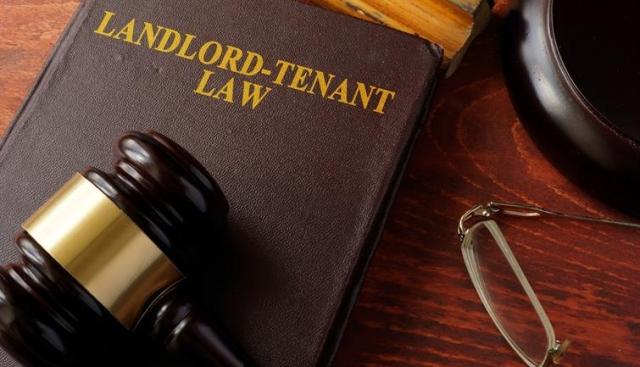Being a renter, you may have heard the term landlord-tenant laws (or landlord-tenant rights) and wondered what this meant. In a nutshell, landlord-tenant laws are state laws concerning the rights and responsibilities of both landlords and tenants, and they are different depending on where you live.
Not only are the laws different in every state, they are also frequently changed, so it’s a good idea to know your state’s landlord-tenant laws. When you are ready to move, be sure to check them to see if anything has changed. If you are moving to another state, it’s important to research the laws in the state you’ll be moving to, just so you can avoid unexpected surprises. For example, you might be living in a state that caps the amount a security deposit can be, such as New York. If you decide to move to a state that doesn’t have a cap, such as Florida, you could be surprised when you arrive and realize you didn’t budget enough for your moving fees.
In addition to varying by state, landlord-tenant laws can also vary by city. So even if you are just moving to a neighboring city in your own state, the laws could be different. For example, San Francisco has rent control laws in place that limit what landlords can charge for rent, but this isn’t the case in many other California cities.
Landlord-tenant Laws Aren't Federal Laws
Landlord-tenant laws are different from the federal guidelines designed to protect renters. Federal housing law, called the Federal Fair Housing Act, or FHA, prohibits discrimination in housing. Unlike landlord-tenant laws, which are different depending on where you live, the FHA applies uniformly to all 50 states.
Another federal law that applies to every state is the Fair Credit Reporting Act, which clarifies the ways a landlord can use your credit history for screening purposes. This law says that landlords need the applicant’s written permission to run a credit report, and they are required to inform you of the information contained in the report if this is the basis for them denying your credit application.
What Landlord-tenant Laws Cover
While every state has their own landlord-tenant laws, they do share some similarities. Most states have laws concerning the following subjects (but be sure to read the laws in your state to see what is applicable where you live):
The right to quiet enjoyment
This law protects your right to live at the property without disturbance. Basically, as long as you live at the property, you have the right to do so peacefully. This could be defined differently depending on where you live, but your state law may include something about your right to privacy, meaning your landlord can’t just stop by unannounced (they must give advance notice) unless there’s an emergency.
The right to livable conditions
The landlord should ensure that the rental home is in a safe, habitable condition. What this means specifically varies by state, so check your local laws. Basically, it means the rental home must be safe and free from dangerous defects.
Laws protecting security deposits
Many states have some laws concerning security deposits. These laws might cover the maximum amount of a security deposit, if there is one. A lot of states don’t set a maximum amount, so be sure to check the laws where you live or are moving to. State law may also specify how many days the landlord has to return the security deposit at the end of the lease. If they are keeping all or a portion of the deposit, they might be required to provide you with a written account of the deductions made.
Laws concerning retaliatory conduct
Several states have laws about retaliatory conduct. This means a landlord can’t take action against you for exercising a legal right, such as filing a complaint with a government agency about the health or safety conditions of a rental property, participating in a political or union activity, or filing a complaint about discriminatory housing practices.
Tenant Responsibilities
As the tenant in the landlord-tenant laws, you might be wondering what your responsibilities might be. Just as renters are protected by these state laws, so are landlords. Of course, as a tenant, you sign a lease with terms you agree to abide by. Some of these might be addressed in your state’s landlord-tenant laws, such as:
The duty to preserve the premises
If you hope to get your security deposit returned to you at the end of your lease, you are likely required by your state law to return the property to the landlord in the same condition as when you rented it, minus normal wear and tear.
As a renter, you are agreeing to the upkeep of the home. This may include discarding trash in a timely manner, maintaining the appliances, and preventing mold growth by using proper ventilation. Avoid causing excessive damage, such as removing fixtures, causing a fire through reckless conduct, or tampering with the smoke or carbon monoxide detectors. This law may also cover criminal activity on the property and noise ordinances.
The duty to pay rent
When you sign a lease agreement, you are committing to paying the rent on time. Not paying rent or consistently paying late would be a violation of the lease agreement, and the landlord would have legal grounds to pursue eviction.
Adhering to the Terms of the Lease Agreement
Every lease is different, and they vary in length from one page to more than 20 pages. Once you sign the lease, you are responsible for adhering to the terms specified in the lease agreement. Read your lease carefully so you don’t unintentionally violate the lease. The lease specifies the length of the lease, the procedures for paying rent, the penalties for paying late, move-out requirements, and more.
Not only are landlord-tenant laws different depending on where you live, they are changed or updated frequently. It’s always a good idea to brush up on what your state statutes are so you are aware of your rights and responsibilities as a renter. It’s also helpful to know what your landlord’s rights and responsibilities are, just to avoid any confusion during the rental process. And if you are moving to another state, learning the laws of your new state could help you prepare for added moving expenses and different requirements.
Disclaimer: The above information is in no way intended to be a substitute for qualified legal advice. Please conduct your own research and comply with all of your state and local laws. If you need legal help, please contact the appropriate government agency and/or a qualified lawyer in your area.






